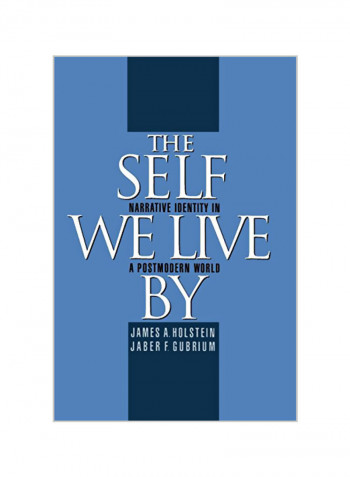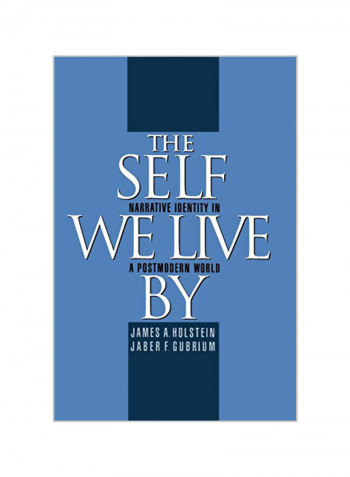The Self We Live by: Narrative Identity in a Postmodern World Paperback
Recommend
Sort by
Rating
Date
Specifications
Author 1
James A. Holstein
Book Description
The story of the self is big story. For at least a century, the concept of the empirical self has been an important, if not our most central, social structure. The early pragmatists William James, Charles Horton Cooley, and George Herbert Mead, among others, turned away from the transcendental self of philosophical reflection to formulate a concept that extended to every individual's consideration who and what they were. The democratized the self and set the stage for social psychological commentary for decades to come. Now, according to some postmodern voices, the self does not amount to much anymore on the brink of the 21st century. its narrative has fizzled. The self is a mere shadow of what is was, now communicated in evanescent images of identity. The Self We Live By resurrects the big story by taking issue with this account. Holstein and Gubrium have crafted an accessible, comprehensive discussion which traces a different course of developmetn, from the early pragmatists to contemporary constructionist considerations. Glimpses of renewal are located in a new kind of ending, one centered in an institutional landscape of diverse naratives of the self. Not only is there a new story of the self, but we're told that the self, itself, is narratively constructed. Yet, as varied and plentiful as narrative identity has become, it's disciplined by its social practices, which the authors discuss and illustrate in terms of the "everyday technology of self construction." The empirical self, its turns out, has become more complex and varied than its formulators could have ever imagined it to be. The book is written at a level suitable for advanced undergraduates and graduate students in psychology, sociology, and related social sciences.
Language
English
Publisher
Oxford University Press, USA




